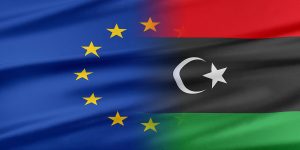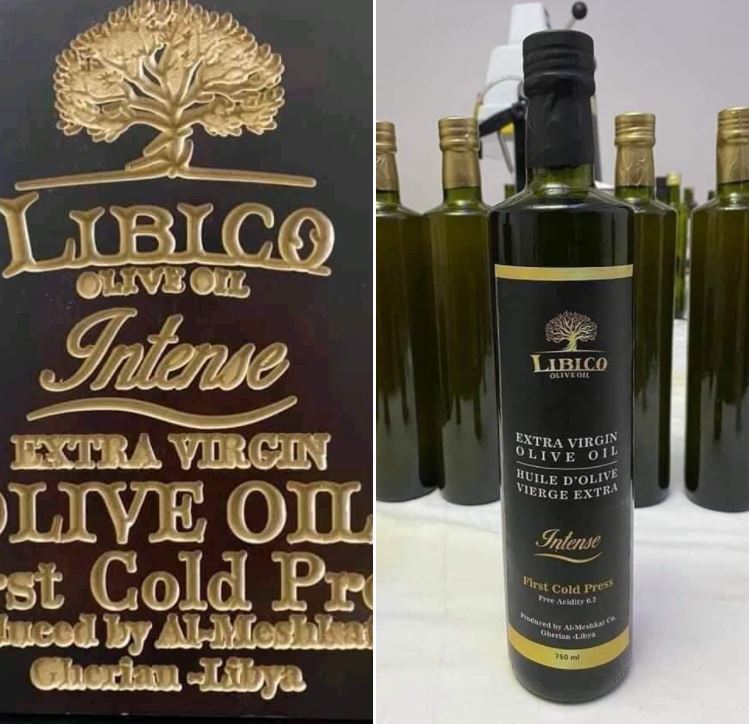By Sami Zaptia.
London, 20 March 2021:
Speaking to media in Rome yesterday on the occasion of the first anniversary of Operation IRINI, EU High Representative Josep Borrel said ‘‘Through Operation Irini we have been contributing substantially to create a stable environment that will allow for reconciliation and to go forward’’.
‘‘Operation Irini has achieved concrete results despite the difficulties linked to the pandemic’’.
On foreign fighters and mercenaries present on Libyan soil, he said ‘‘at the end of the process the Foreign fighters, be it mercenaries, be it whatever you want to call them, have to leave. And I understand that it is not going to happen tomorrow as I said, but it is part of the deal.
I do not have a magic wand to make the foreign fighters leave, but [them] leaving Libya is part of the solution for Libya’’
On EU support for Libya’s ceasefire monitoring by the international community, Borrel said ‘‘If the United Nations requests the European Union’s support, I am sure the European Union and its Member States will be ready to consider this request. But the European Union cannot decide “I am going to monitor the ceasefire”. No, it has to be the United Nations who requests our support. If this is the case, for sure, we will be ready to consider it’’.
Regarding the appointment of the Special Envoy of the European Union for Libya, he said, ‘‘Yes, on the coming days, I will have to present a proposal to the Foreign Affairs Ministers. The problem is that I have several good candidates and I have to choose one. But it will happen soon’’.
Here is Borrel’s full press briefing but including only questions and answers where Libya is mentioned:
‘‘I am here today to celebrate the first anniversary of Operation Irini(link is external) and to give credit to the people who have been working, the people who have been behind it, the people who have made it possible.
This visit comes at a time when we see positive developments in Libya. These are really good news.
With the inauguration on Monday of the new Libyan Government of National Unity, led by the new Prime Minister [of Libya, Abd Alhamid] Aldabiaba, we are all witnessing an important moment for Libyans.
The new Government was confirmed by a broad majority of the House of Representatives. The new Presidential Council, led by President [Mohamed] Al-Menfi, has been taking their constitutional oath the same day.
Peace and stability in Libya looks like being within our hand’s reach. It is now for the new leadership to reunify institutions and to lead the country towards elections on the 24th of December. All these developments were made possible by the Libyans themselves and they deserve credit for it. Many are providing support – above all the United Nations, but also the European Union.
On the European Union side, we have been actively engaged through diplomatic action on the political process and have provided substantial support on the economic front. I can say that [the European Union has provided] more than €700 million over the past years.
Then, Operation Irini came, one year ago. Through Operation Irini we have been contributing substantially to create a stable environment that will allow for reconciliation and to go forward.
As I said, we are celebrating today one year since we launched this Operation – a particularly difficult one. And believe me, it was and it is, a difficult one. Today I am proud to say that Operation Irini has achieved concrete results despite the difficulties linked to the pandemic.
I am very honoured to have the possibility today here, at the headquarters of Operation Irini, to thank Italy for the important role that has played in setting the Operation and for hosting this headquarters.
Operation Irini has conducted more than 2,300 hailings, close to 100 friendly approaches and 8 inspections. This includes also the seizure of illegal cargos and prevented an illegal export of fuel.
Irini is not only a navy operation. Its assets are ships, but it also has eyes to look at what is happening in the sky and from the space to monitor violations occurring on land and by air.
On doing so, it has monitored 16 Libyan ports and oil facilities. It has also monitored 25 airports and landing strips as well as almost 200 flights that were possibly carrying military-related cargos back and forth to Libya.
All this work, all this information has been reported to the United Nations Panel of Experts in more than 20 confidential special reports, highlighting the violations of the arms embargo on both sides of the conflict in Libya. Just two days ago, the Panel issued the latest comprehensive report acknowledging the good cooperation of Operation Irini and the support that this Operation has been providing to the Panel’s investigations into non-compliance.
And when we say violations, I mean violations by all sides, because there are violations by all sides. The Operation carries out its mandate in full impartiality, in accordance with United Nations Security Council resolutions. Nothing more and nothing less.
Today, more than ever, it is crucial that everyone respects the mandate, which has been granted by the United Nations – it is not the European Union who gave the mandate to Operation Irini, it is a United Nations mandate, we are just implementing it – with the approval of all its Member States.
I want to welcome the fact that Libyans have embarked on the road to peace.
We have a responsibility to ensure that Libyans have full control of their future and can finally live in peace and stability, because their peace will contribute to our peace and their security will be part of our security. So, we are not working only for the Libyans future, we are working for the European future. And we will continue doing so.
Thank you Admiral, thank you General, thank you to all men and women who have been working and making this mission possible.
Q&A
Q1. On the Libyan peace process, of course, the new government is a welcome news that would have been unthinkable in the summer, but there are still repeated violations of the embargo and, most of all, there is a problem with the presence of foreign fighters. How can the peace process be successfully enforced by the international community? Because those foreign fighters are supported by nations, most of all Turkey and Russia, who have an interest to keep and influence Libya? How can it be possible to successfully remove this influence?
The foreign policy in Libya is nothing new. When I came to my job one year ago they [the foreign fighters] already were there. And during the last year the military presence of mainly Turkey and Russia has been increasing and we are not unaware of what is happening there and the important role that Turkey has been doing on the development of the military actions during the last year. For sure without Turkey’s involvement in the war, the situation would be completely different. But we are aware there are foreign troops in Libya, part of the solution for the Libya political process has to be the withdrawal of the foreign fighters.
It is not going to happen tomorrow, we have to go step by step, we have first to ensure the ceasefire, we have to look for a monitoring of the ceasefire to ensure that it will last, to give time to the newly politically appointed authorities to do their job. But at the end of the process the Foreign fighters, be it mercenaries, be it whatever you want to call them, have to leave. And I understand that it is not going to happen tomorrow as I said, but it is part of the deal.
In the meantime, we have to support the political process. We have to make the elections scheduled by the end of the year possible, and we have to continue to engage on all fronts. We have to support for example the Libyan coast guards, we cannot let the Libyan coast guards be in the hands of one of the foreign agents and we have to be ready to continue supporting financially the development of the negotiations under United Nations auspices.
This is the way it is. I cannot, I do not have a magic wand to make the foreign fighters leave, but [them] leaving Libya is part of the solution for Libya and I am very much hopeful that this will happen.
****
Q2. Are there any news on the proposal to have a European Union envoy in Libya? You talked about monitoring what is happening in Libya, especially in the field of mercenaries. The United Nations just sent an advanced monitoring mission in Sirte. Do you think that Operation Irini can, perhaps, cooperate with the United Nations in this regard?
The role of Operation Irini is not to monitor the ceasefire. It has a role of controlling the arms embargo. Do not mix different issues. Operation Irini was launched before the ceasefire and has nothing to do with monitoring the ceasefire.
It does not mean that the European Union is not ready to participate and cooperate on the monitoring of the ceasefire. But this is on the hands of the United Nations. If the United Nations requests the European Union’s support, I am sure the European Union and its Member States will be ready to consider this request. But the European Union cannot decide “I am going to monitor the ceasefire”. No, it has to be the United Nations who requests our support. If this is the case, for sure, we will be ready to consider it.
About the Special Envoy of the European Union for Libya. Yes, on the coming days, I will have to present a proposal to the Foreign Affairs Ministers. The problem is that I have several good candidates and I have to choose one. But it will happen soon”.









